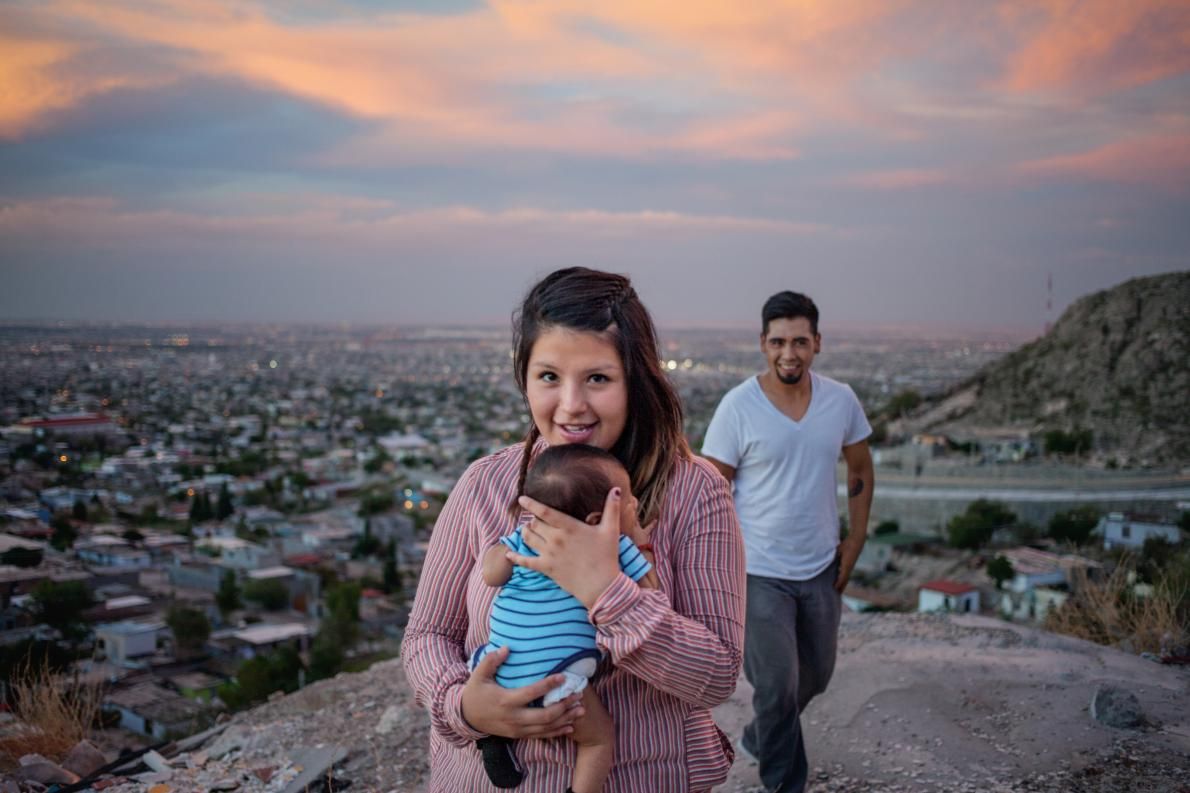To view this newsletter in your browser, click here.
A CITY RETURNS TO LIFE
Not long ago Ciudad Juarez, on Mexico’s border with Texas, was famous for being the murder capital of the world. In 2010, the city of 1.5 million witnessed more than 3,000 homicides. Today, it ranks 37th, far behind U.S. cities like New Orleans and Baltimore. Pulitzer Center grantee Dominic Bracco II reports that new businesses are springing up, headlines feature mass weddings instead of massacres, and the circus is in town again after a seven-year hiatus. In this short video for National Geographic, Dominic tells the story of Juarez’s rebirth through the eyes of Diego, a former gang member who now teaches children how to draw and paint.
If you are a teacher, connect your students to Dominic's work using this lesson plan built on the Lesson Builder.
SLOWING THE PROGRESS OF A DISEASE, BUT ONLY IF YOU CAN PAY
Huntington’s disease is a rare genetic brain disorder that begins with personality changes that can make individuals aggressive, violent, uninhibited, anxious and depressed. As Pulitzer Center grantee Dara Mohammadi reports in The Guardian, the disease progresses slowly, robbing its victims first of control of their body, which jerks and twists seemingly of its own will, and then their ability to walk, talk and think until, about 20 years after the symptoms first begin, they die. Medical researchers trying to understand the disease have turned to several isolated communities in Latin America where Huntington’s is prevalent. From tissue samples donated by the residents, researchers have created stem cell lines that may unlock a cure. Although no cure has been found, there are drug treatments that can slow the progress of the disease. These treatments, however, are not available to the impoverished residents who helped make them possible. Why? Because at $400 a month, it costs too much. As one researcher tells Dara, “I’m worried that drug companies haven’t reached a sense of consciousness about the communities that live in developing countries.”
HELPING REFUGEES FIND A REFUGE
Last week, we highlighted Pulitzer Center grantee Robin Shulman’s story in The Washington Post Magazine about how ordinary Canadian citizens were taking it upon themselves to resettle Syrian refugees. This week grantee Jeanne Carstensen returns to Greece with photographer Jodi Hilton where they report for PRI’s The World on how local activists commandeered a vacant hotel in central Athens—a casualty of the Greek economic crisis—and turned it into a safe haven for refugees. “Maybe we can’t change the world,” one of the activists tells Jeanne, “but we can change our neighborhood, we can change ourselves.”
Our student fellows have also done impressive work on the refugee crisis. Abe Kenmore, from Guilford College, writes about Britain’s treatment of some 600,000 so-called “irregular migrants,” most of them failed asylum seekers. “The stated policy of the current government is to create a ‘hostile environment’ for irregular migrants,” writes Abe. This includes new civil sanctions for employers and landlords who hire or rent to irregular migrants, and criminal penalties for new offenses, such as driving a car as an irregular migrant.
Until next week,
Tom Hundley,
Senior Editor
